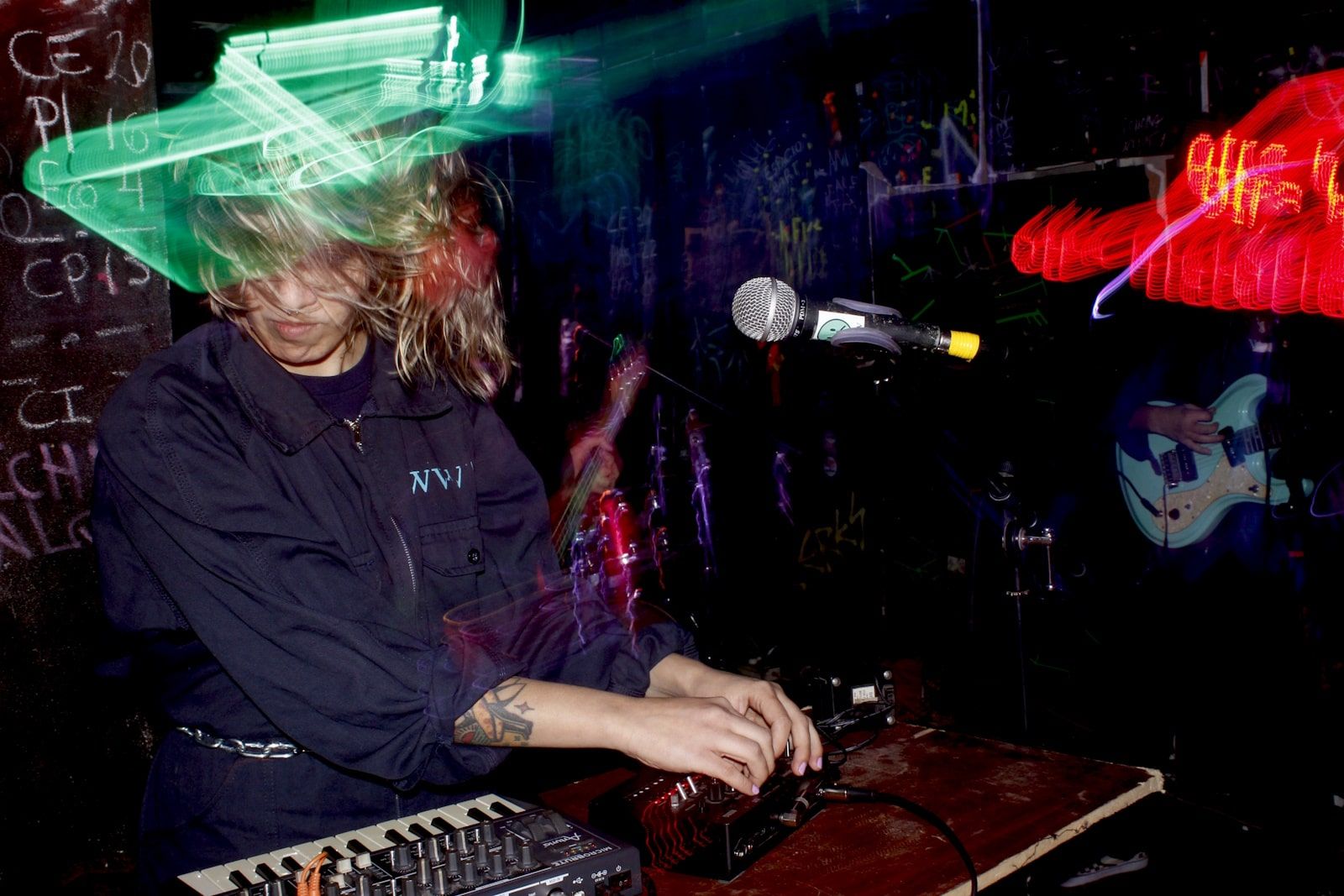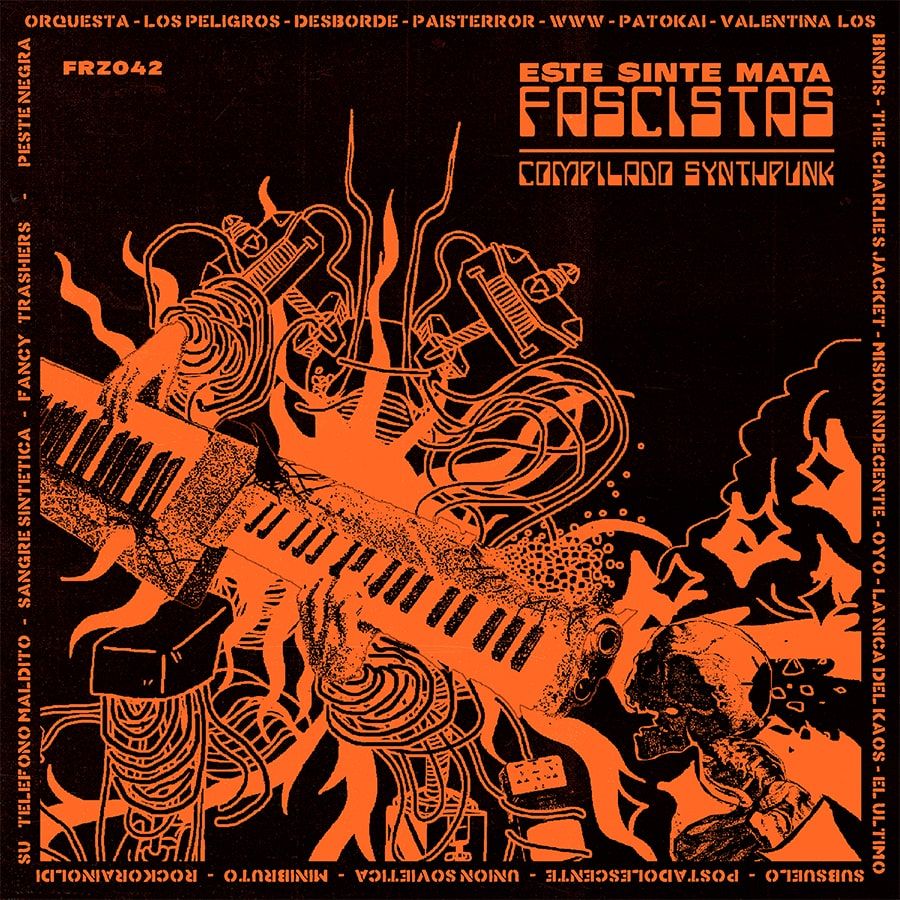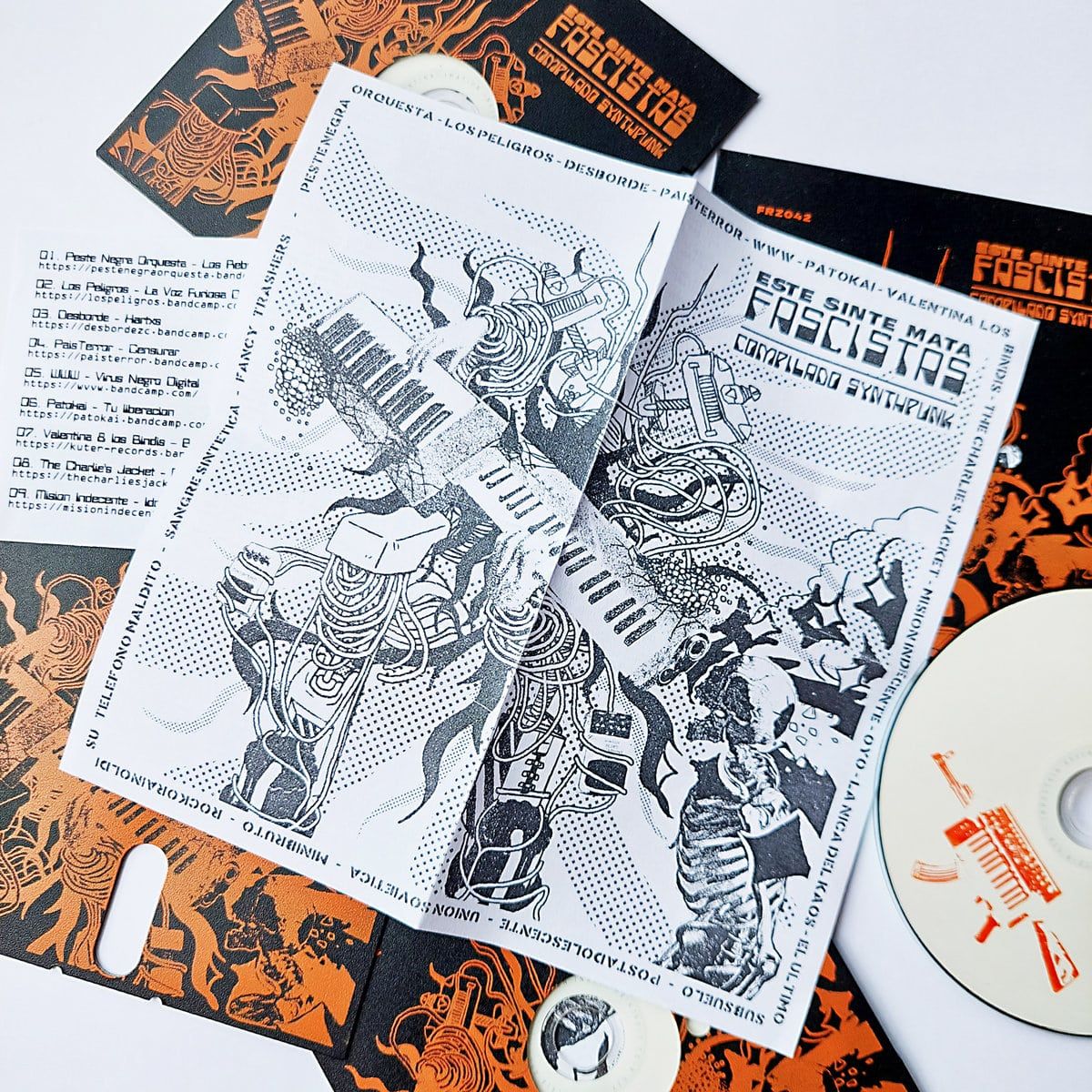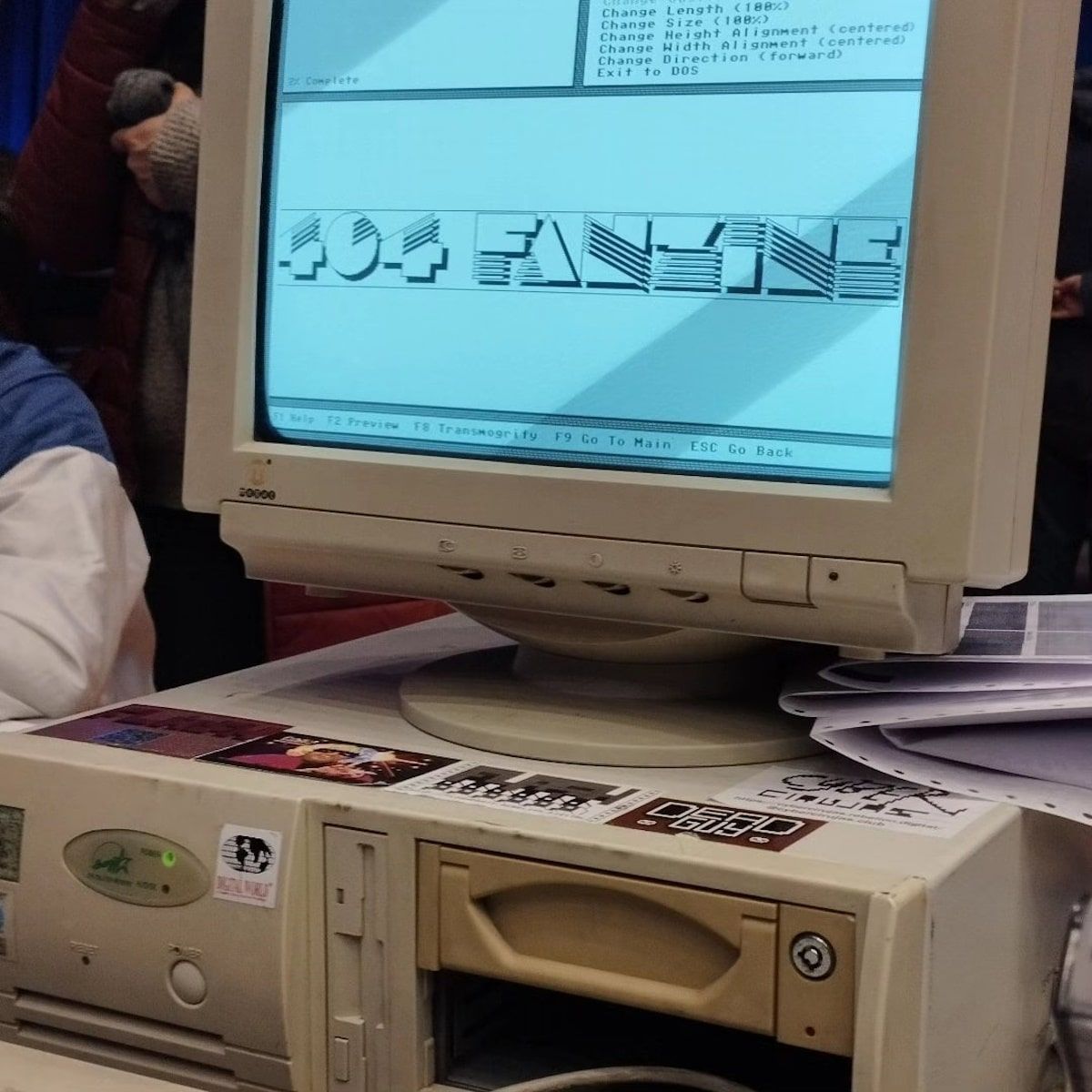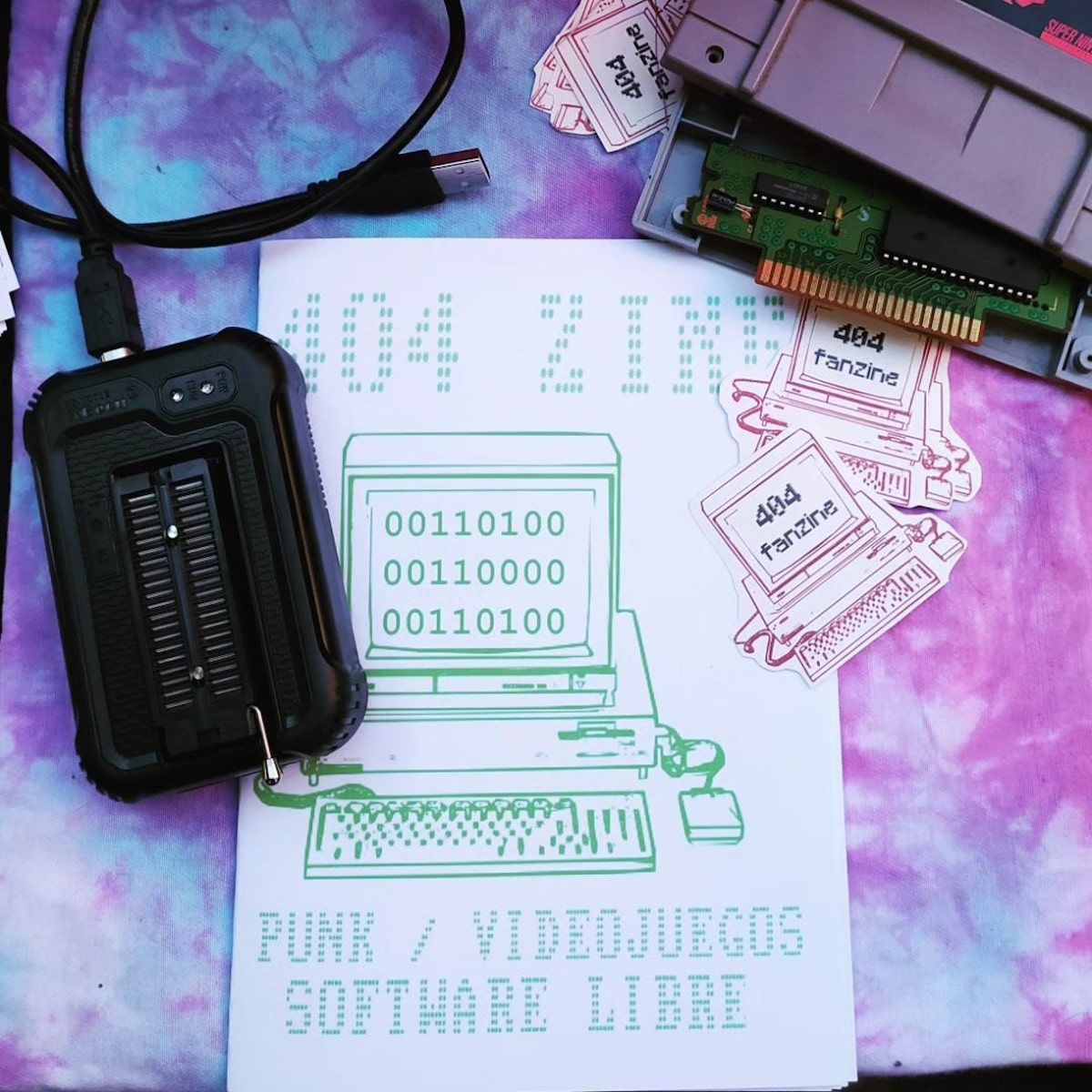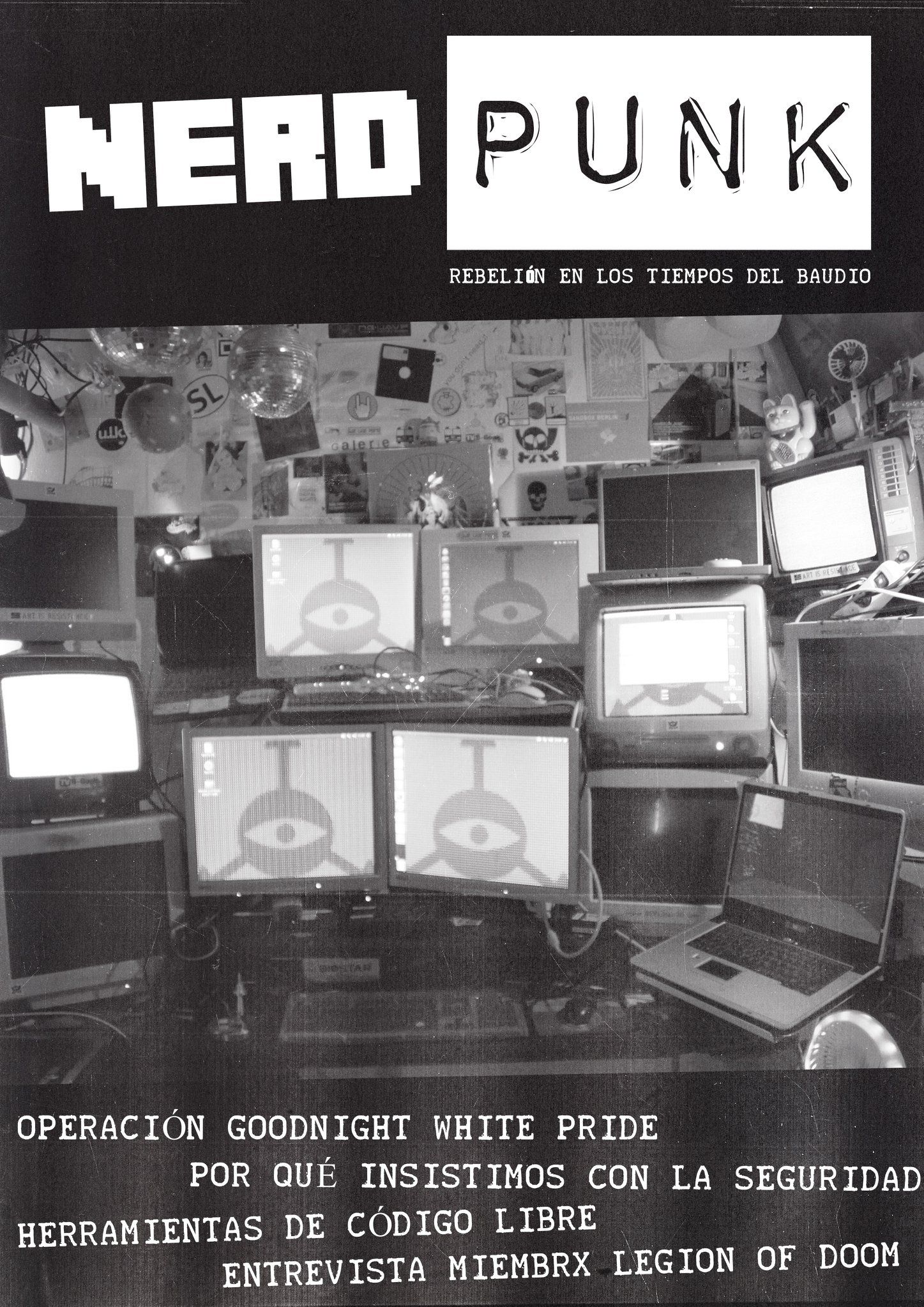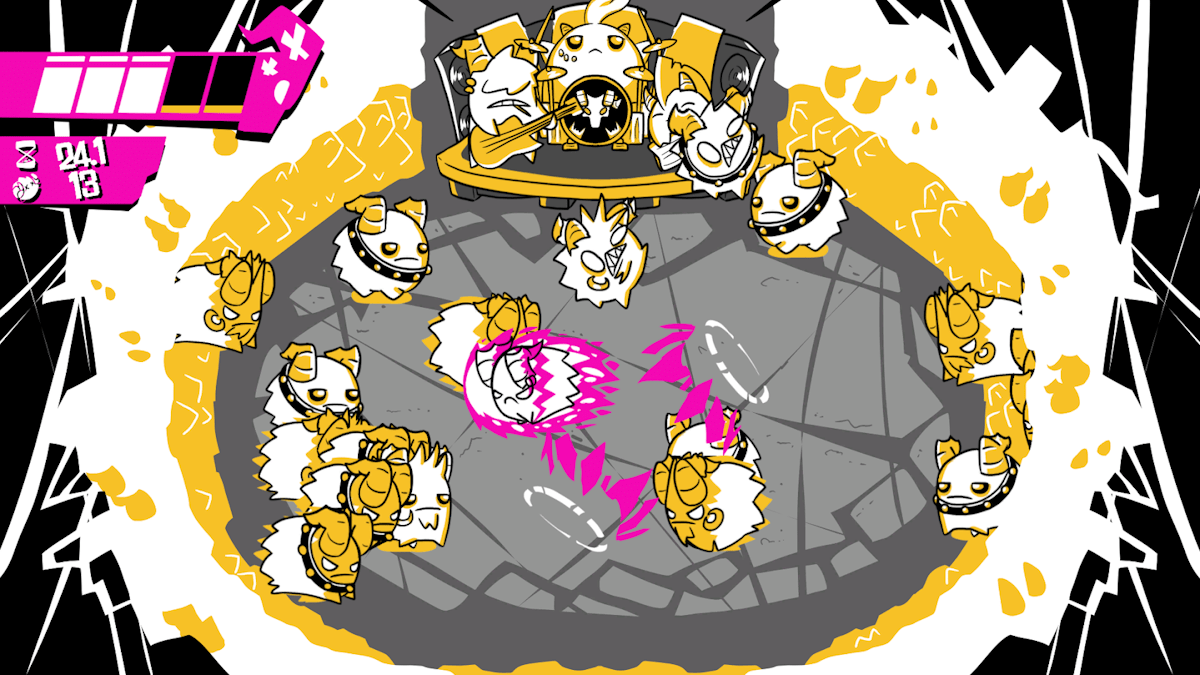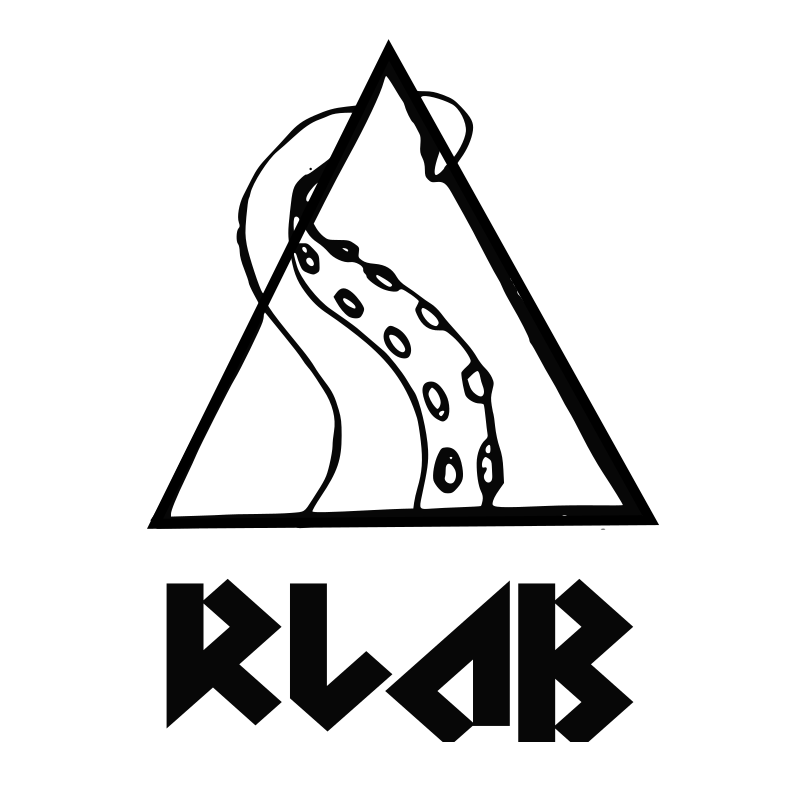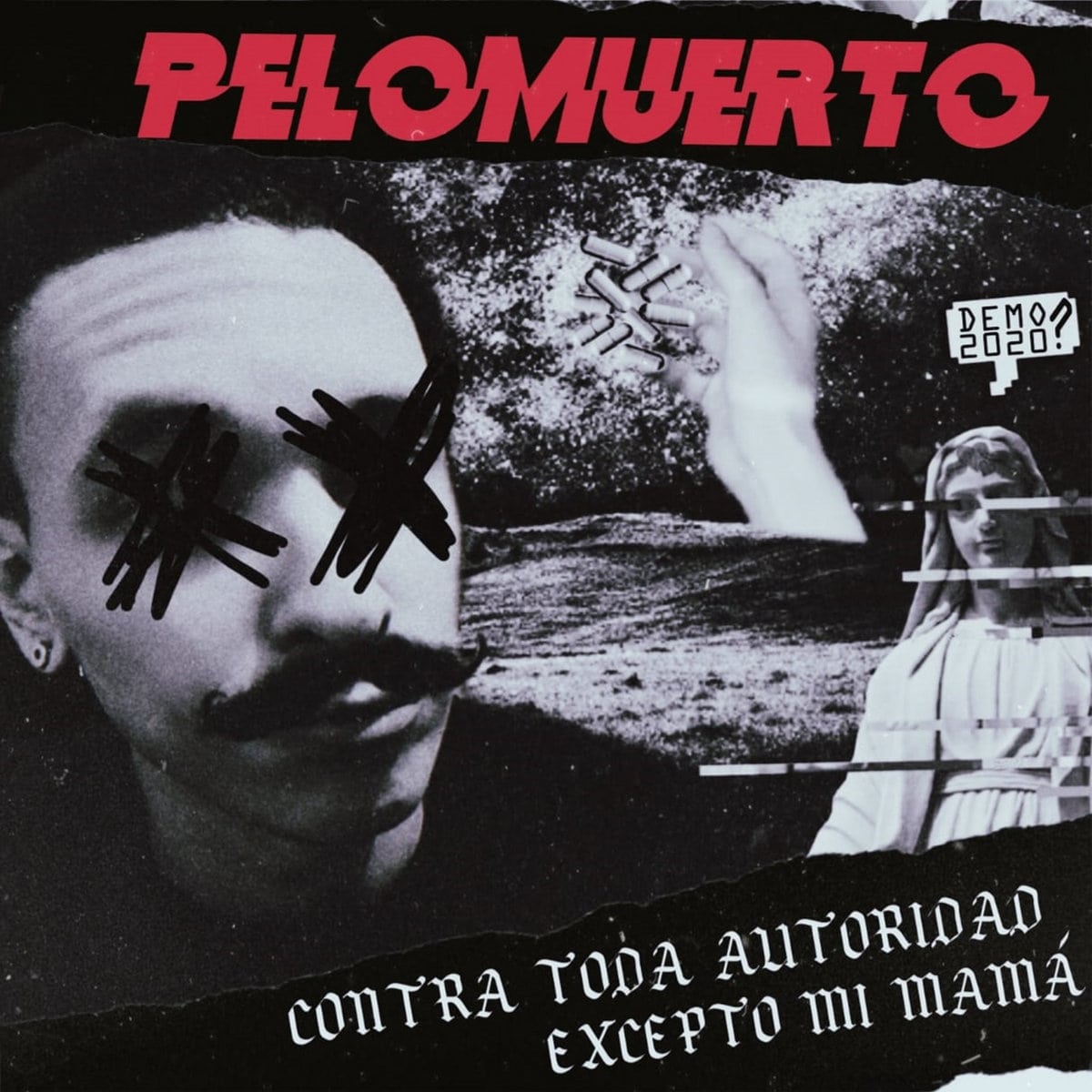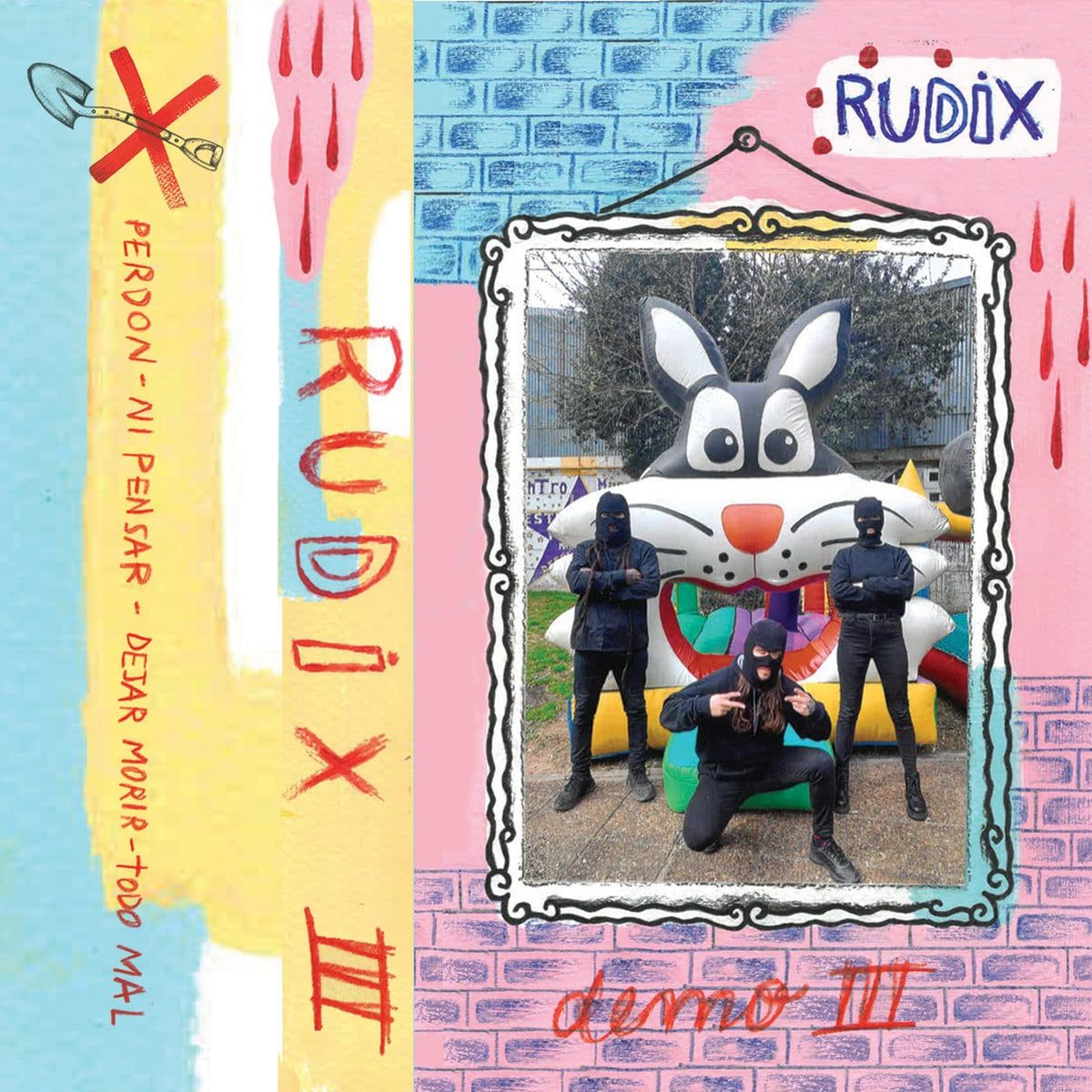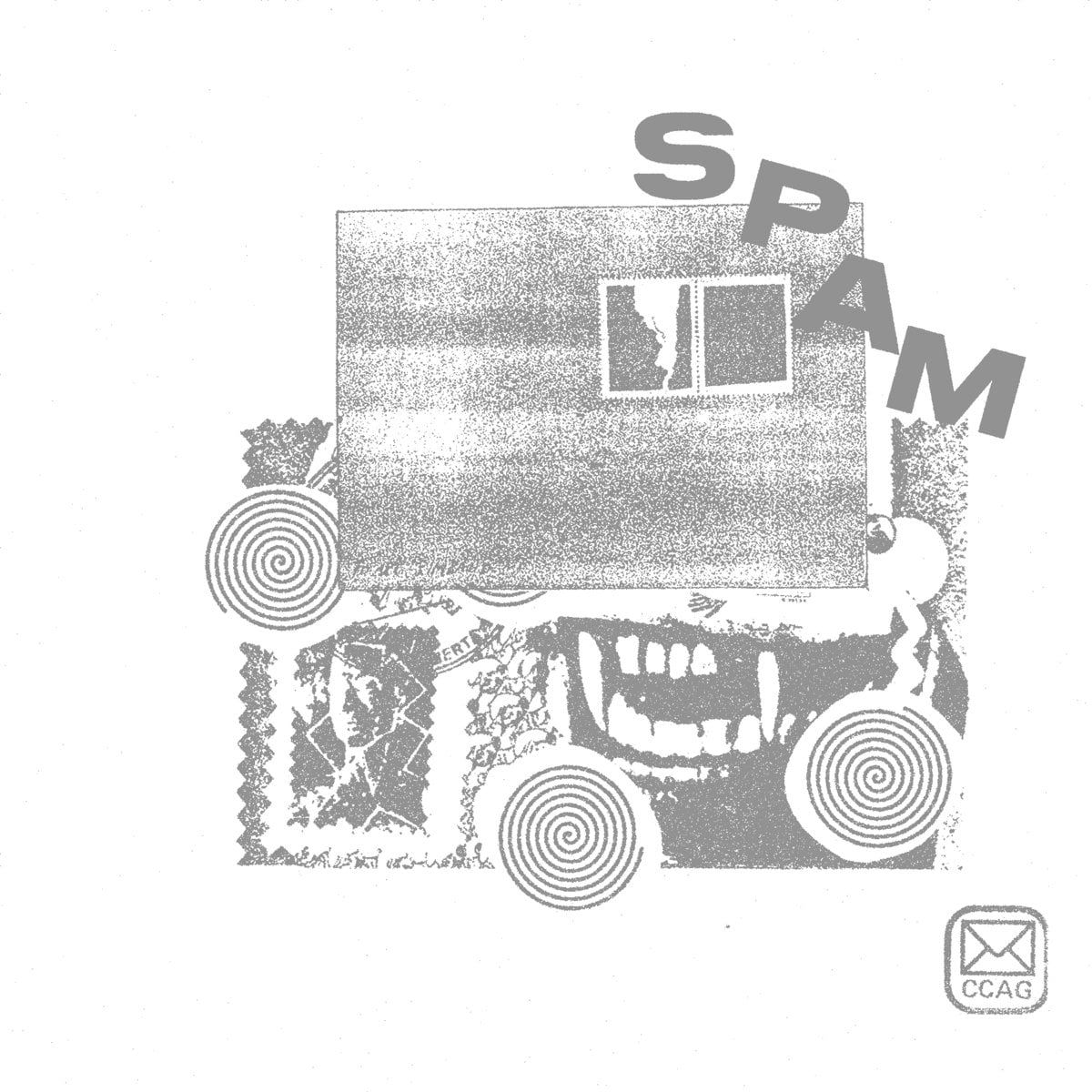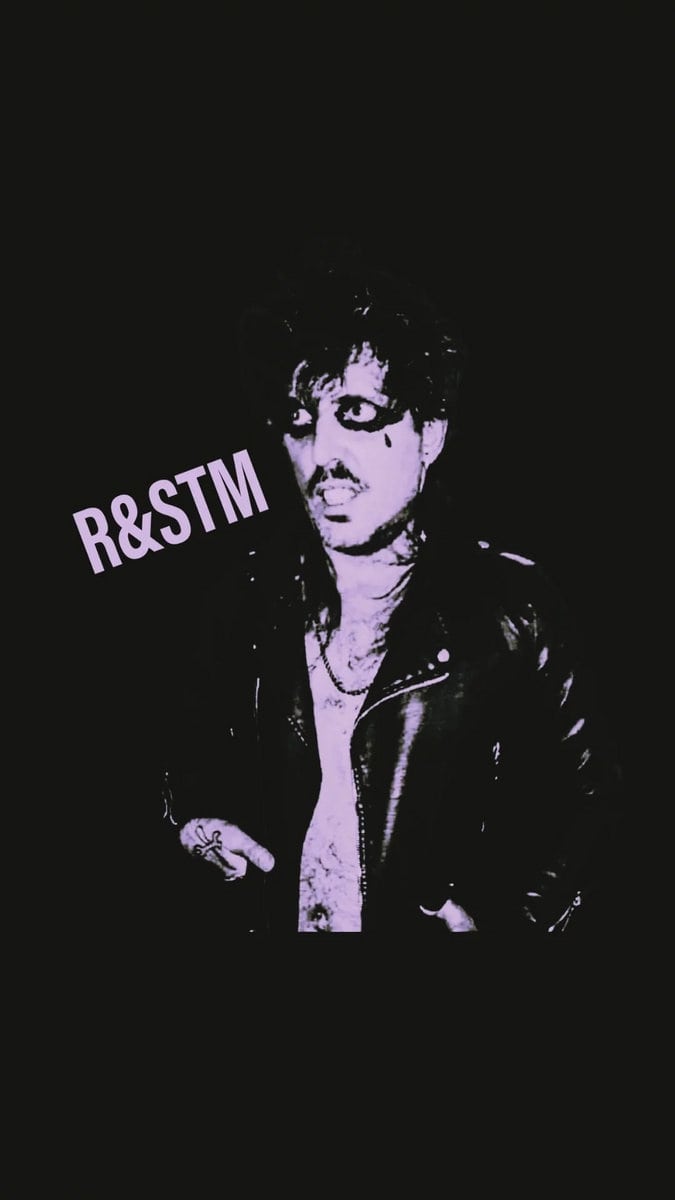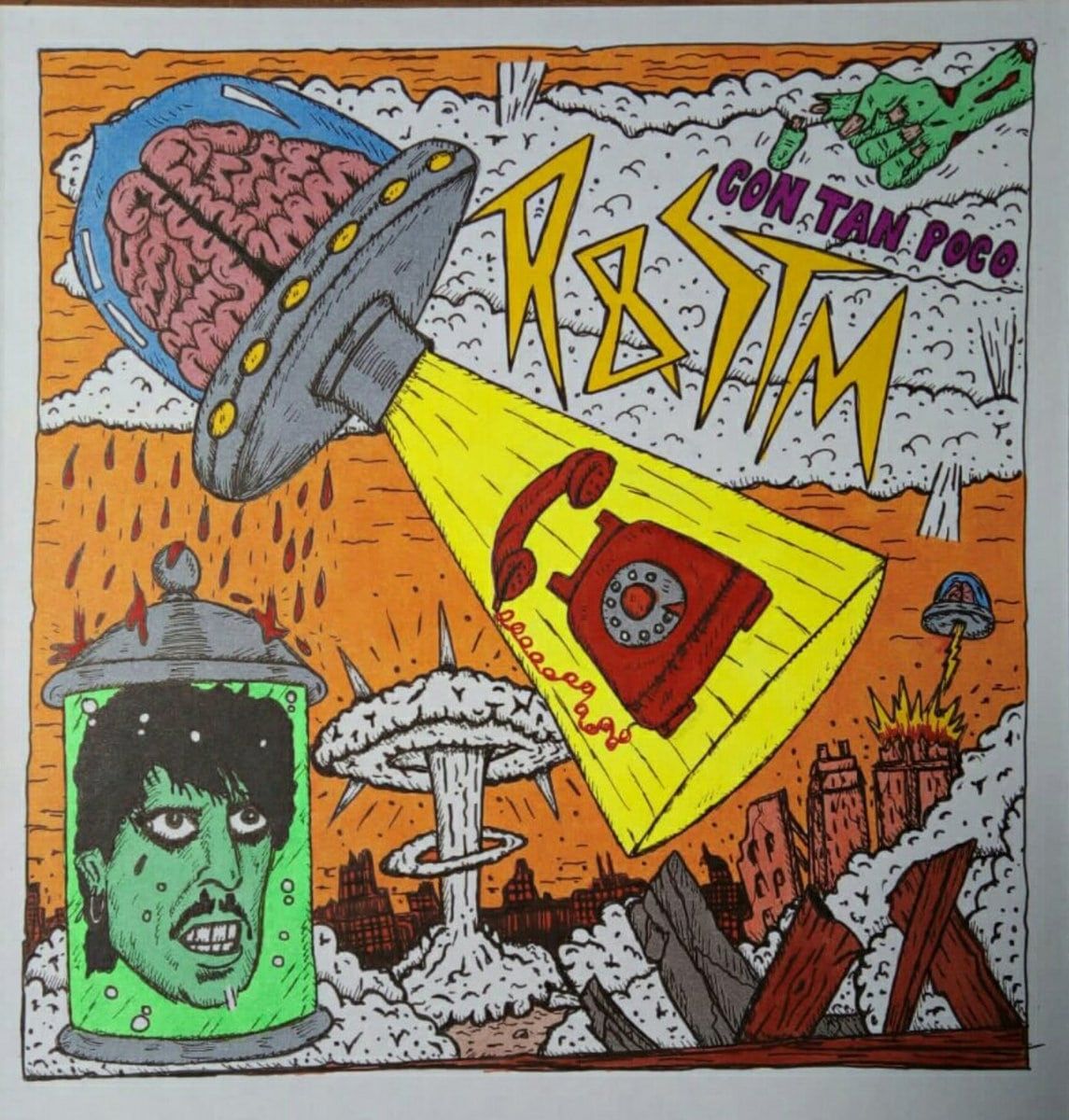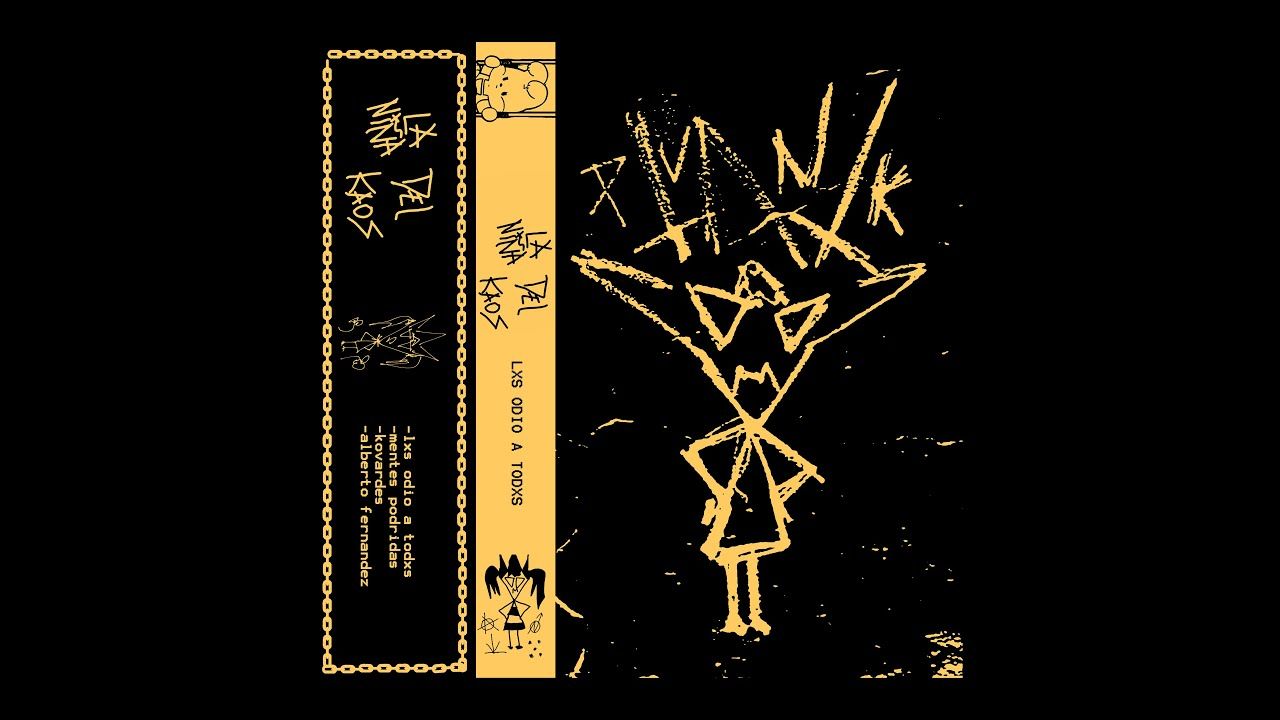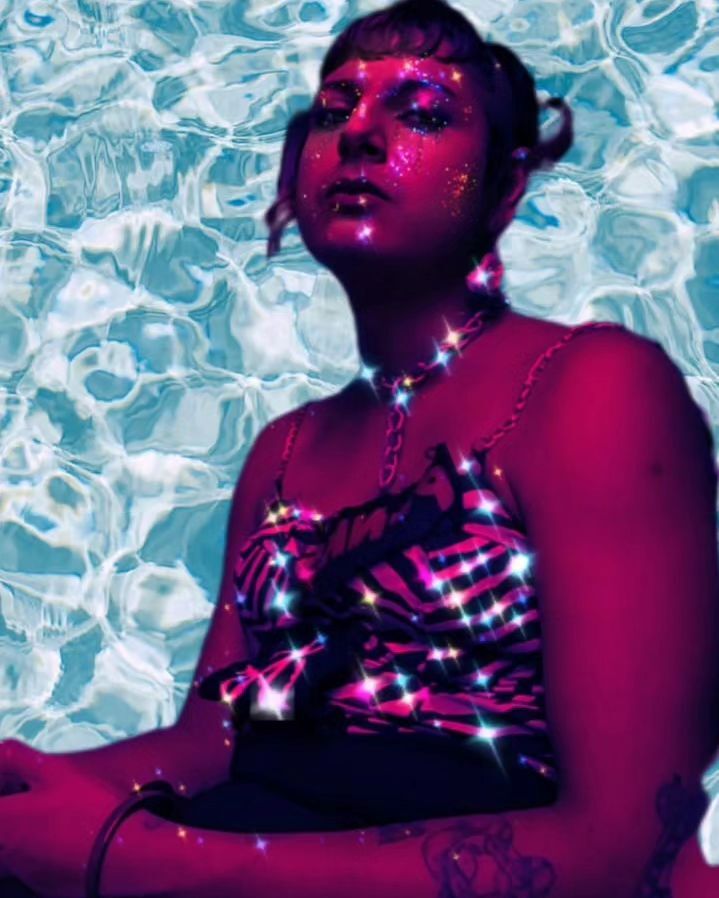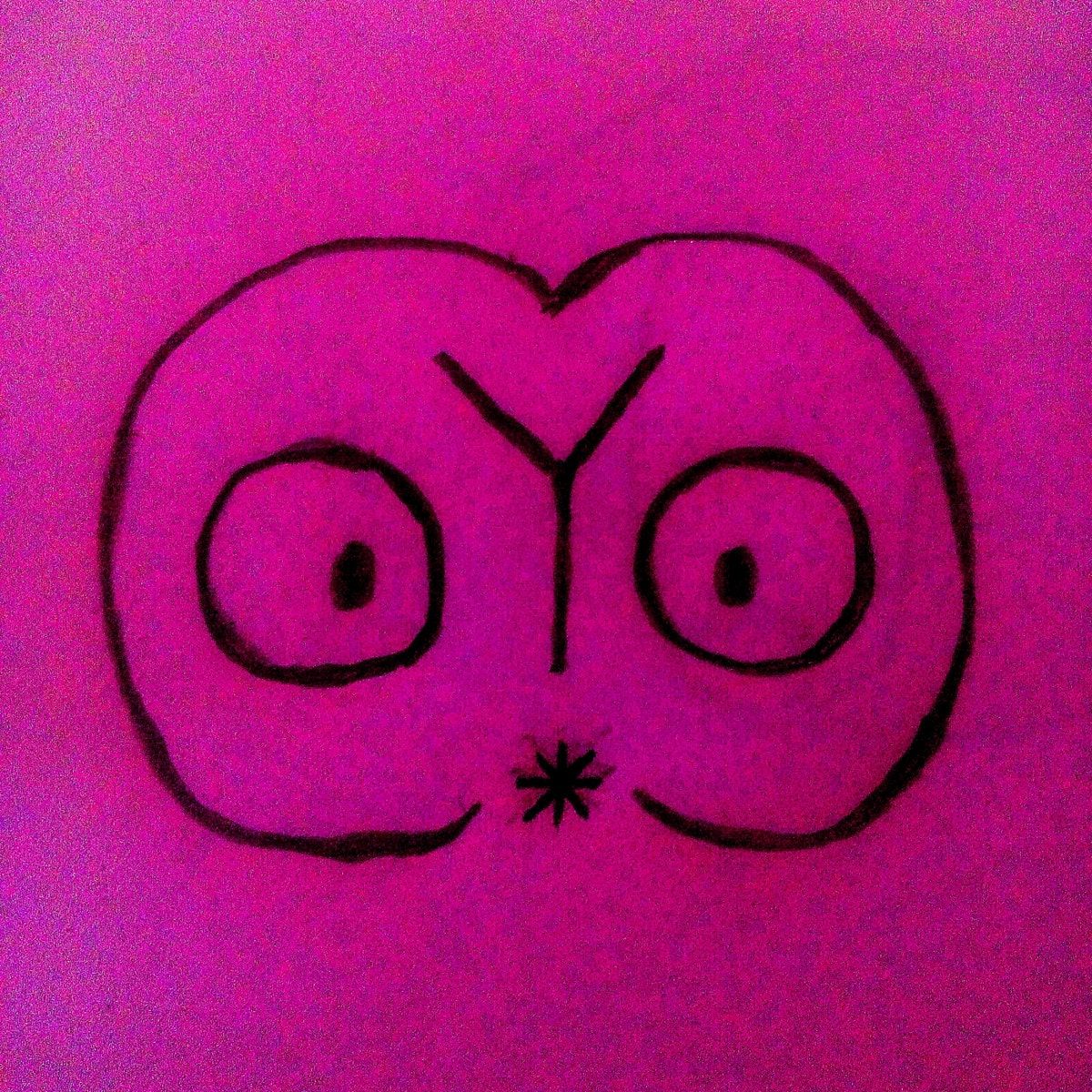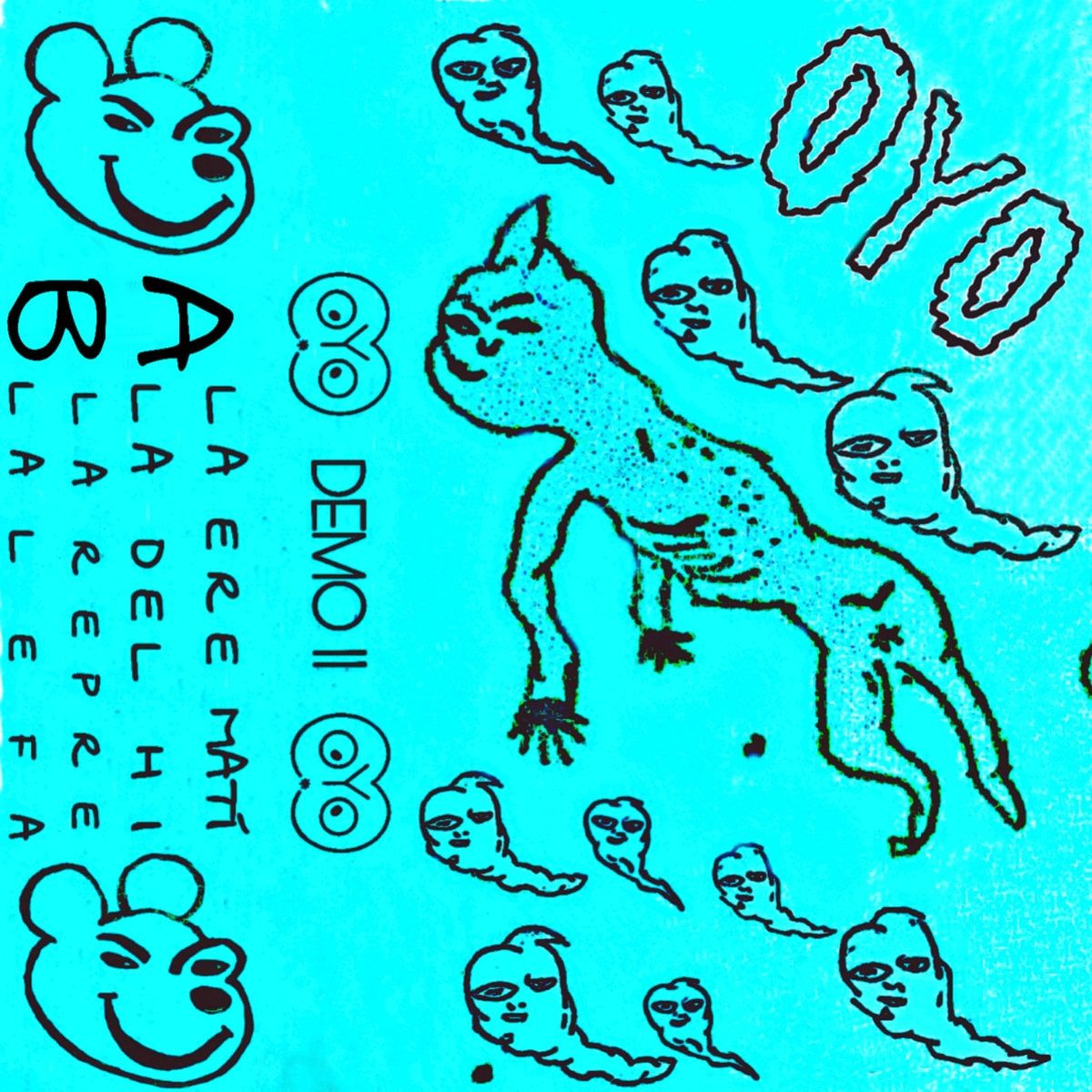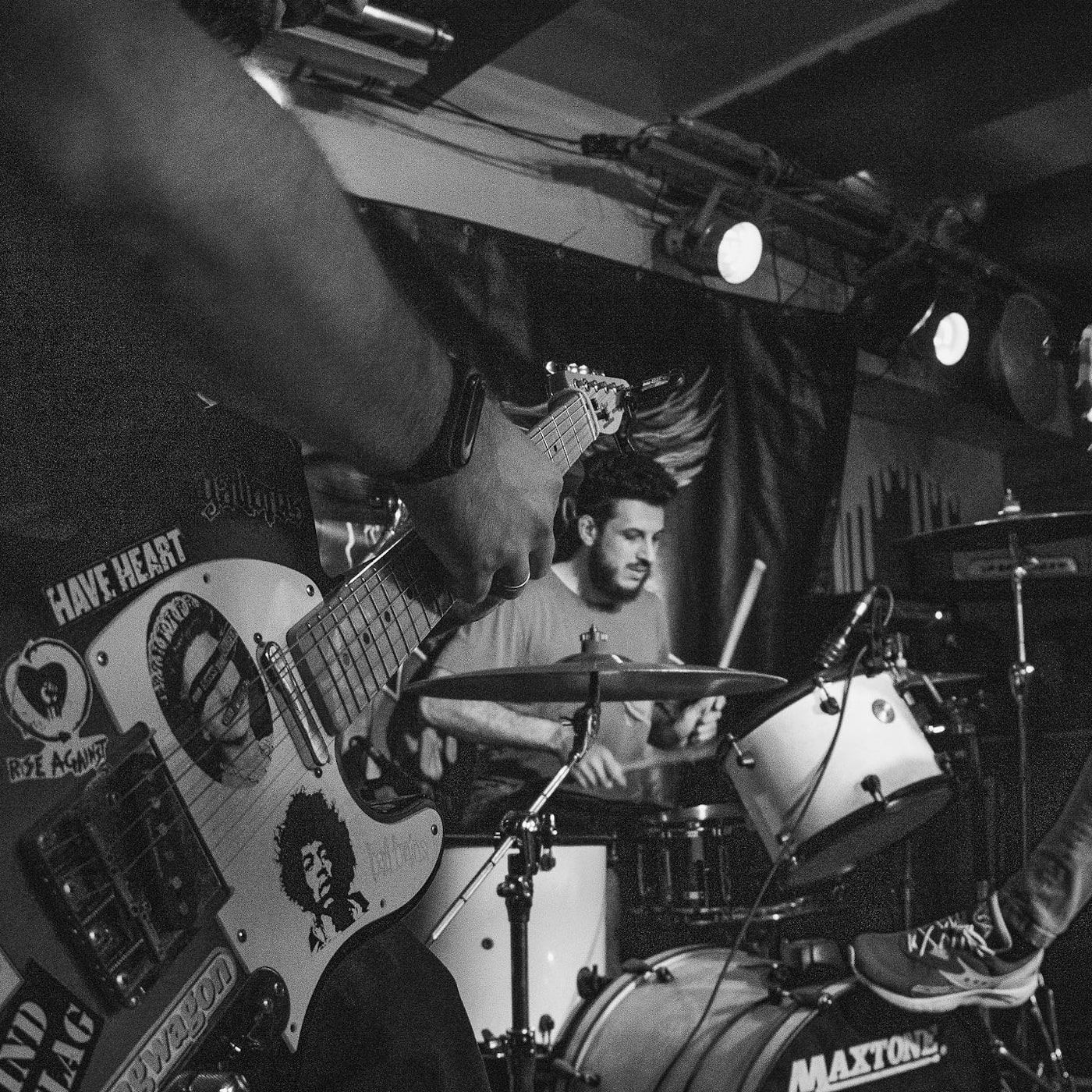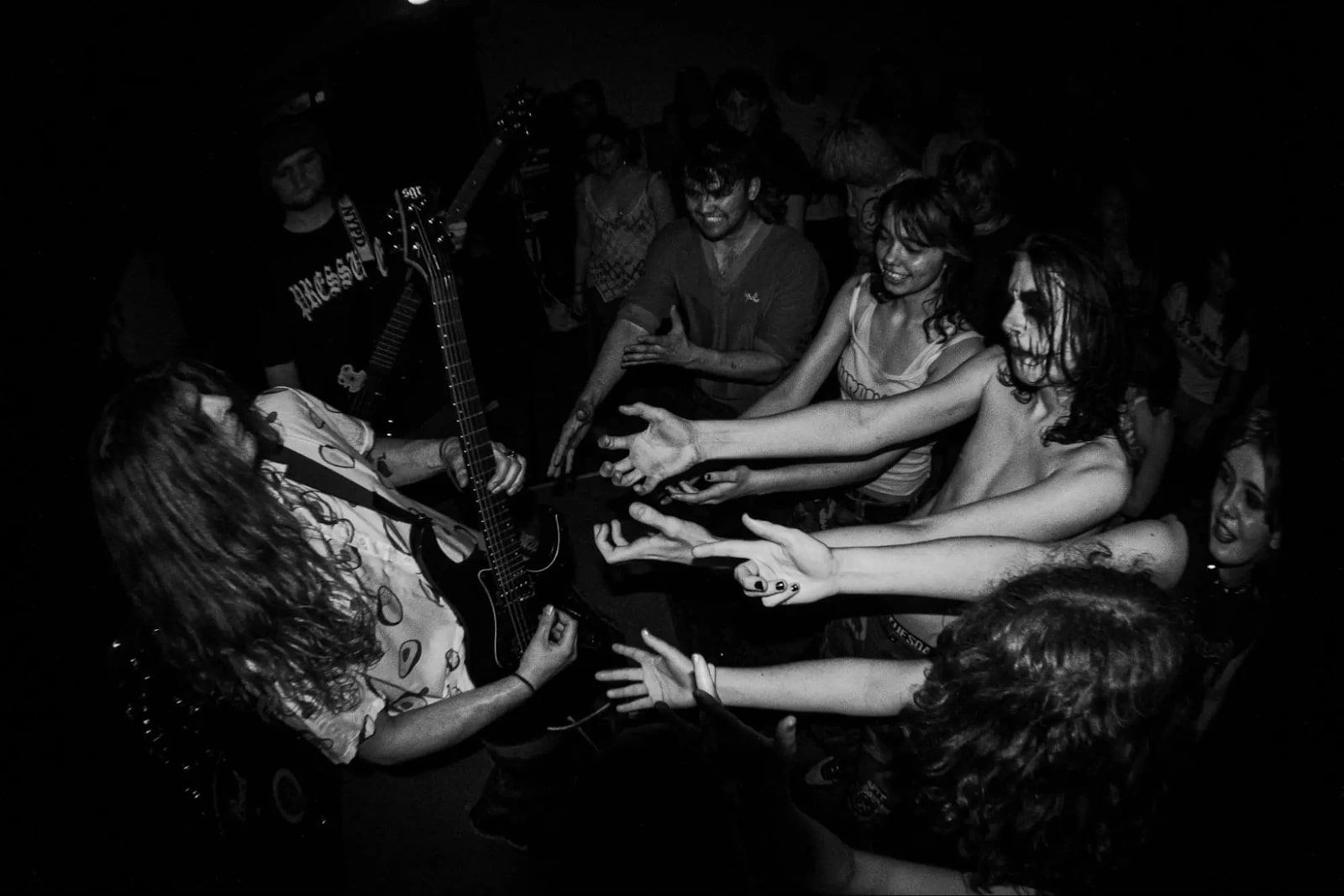The contemporary lo-fi punk wave in Argentina, blending garagepunk and new wave nuances—often referred to as eggpunk—boasts a vibrant scene largely comprised of solo endeavors or duos. These artists, including WWW, Diablos INC, The Netrunners, and various projects by Gabriel Dolce like Subterráneos, Repulsion Switch, and Body Language, navigate their craft with a digital flair, embracing the boundless horizons offered by virtual instruments.
Their experimental bent breathes fresh life into the genre, fostering an environment ripe for collaboration. This has led to a series of interconnected projects, from splits to inventive covers like SPAM’s rendition of WWW’s “Amigxs depresivxs” or OYO’s take on Body Language’s “Alien Hands.” Their innovative output has not only captivated local audiences but has also garnered attention internationally, with releases spanning the US, UK, Japan, Spain, and beyond.
At the heart of this digital punk renaissance is Fichines Ruido Zafarla, a label that has championed these artists from the outset. Gonzalo, a label member, reflects on punk’s historical relationship with technology: “Originally, punk harnessed emerging technologies like cassettes and photocopying to fuel a global self-managed movement. Yet, over time, there’s been a tendency to cling to these analog formats, potentially distancing new generations.” He argues for a more expansive view of punk, one that transcends medium and method, whether through fanzines, blogs, traditional bands, or solo projects utilizing cellphones for music creation.
Fichines Ruido Zafarla’s diverse catalog includes releases across a variety of formats, from diskettes and microcassettes to CD-Cards, VHS, and VCDs, embracing the challenge of adapting to the digital age’s shifting technological landscape. Their innovative spirit extends to translating the Cyberpunk Manifesto by Christian As. Kirtchev into Spanish and compiling “Este Sinte Mata Fascistas,” a collection of 18 Argentine synthpunk bands united in opposition to the rise of far-right ideologies.
“We’re committed to backing projects that dare to innovate musically,” Gonzalo states. “Today’s punk scene, with its shift away from traditional instruments to the use of accessible technology like cellphones and computers, mirrors the original punk movement’s DIY ethos and immediacy. It’s a testament to the genre’s enduring spirit of rebellion and creativity.”
Through their efforts, Fichines Ruido Zafarla not only preserves punk’s foundational principles of self-expression and anti-establishment sentiment but also propels it into the future, championing a new generation of artists who navigate the complexities of modern life with ingenuity and defiance.
The label’s recent compilation, “Este Sinte Mata Fascistas“, is a powerful compilation that brings together a new generation of Argentine groups and solo artists who harness technology to voice their anger and rejection, standing firm in a country increasingly leaning towards the far right.
Spanning from synthpunk to techno, this collection features 18 tracks that not only borrow punk’s raw sound but also its critical perspective on a grim present. Each song, with its unique personality, aims to disrupt the complacency of a society numbed by screens. Through the ages, noise and fury continue to disturb, proving that the spirit of resistance is alive and kicking in the heart of Argentina’s music scene.
In the dynamic interplay between punk and technology, it’s also worth mentioning 404 Fanzine, a trailblazing publication that weaves together the ethos of DIY culture, the world of video gaming, and the promotion of open-source software.
Iris, a stalwart in the DIY community and a contributor to various projects like the Brea Podcast and Acid Drop, underscores the zine’s mission: “We’re compelled to advocate for the free digital tools, hardware repurposing, and importantly, highlight the pivotal role of women and dissident voices in tech.” Iris articulates a vision where punk ethos and hacker culture converge, sharing a common foundation of curiosity, self-education, and a deep-seated rebellion against societal norms.
View this post on Instagram
Hacking, to Iris, represents more than just technical prowess; it embodies the punk spirit of questioning, breaking down, and understanding systems to rebuild them afresh.
“It’s about the nonconformist urge that initially drew me to punk—the raw energy that shakes you awake, urging you not to trust blindly in authority, to challenge tradition, and to stand in solidarity with peers in creating music, zines, independent labels, and even our own digital platforms for free information exchange.”
404 Fanzine stands at this intersection, with two editions already bridging the gap between punk culture and cybersecurity topics like the Chaos Computer Club and ransomware, available both online and in print.
Nerdpunk, a distinctive fanzine birthed by Bene—a multifaceted educator, a pioneer of the Patagonian Punk Book Fair, and a musician with bands like Inwaves and Los Más Peores—merges the seemingly disparate realms of punk culture and hacker ethics. In the secluded and harsh environs of Rio Gallegos, Bene turned to the digital world for solace and community, thereby laying the groundwork for Nerdpunk. This creation seeks to champion the ‘nerds’ within the punk scene, a group often overshadowed despite their significant contributions to programming, cracking, and hacking in the internet’s nascent stages.
With three editions circulating, Nerdpunk stands as a crossroads where digital rebellion and punk’s countercultural spirit converge.
Bene reflects, “Rebellion is a common denominator for us; the early internet felt like the wild west for us outcasts, a domain where we reigned supreme before it became mainstream.” He draws parallels between the DIY ethos of punk and the exploratory nature of early tech enthusiasts, who dove into computers and electronics not just as a pastime but as a form of resistance and expression. “For many of us, punk music was the soundtrack to our digital explorations, often infused with social justice, political activism, or just a resounding defiance against societal norms.”
Amid the convergence of punk and technological innovation in Argentina, not only have fanzines and bands like Los Peligros, Desborde, Peste Negra Orquesta, Fancy Trashers, Minibruto, The Charlie’s Jacket, VientoNegro, The Terror, Killer Party, and Electroshock made their mark. Another notable player on this scene is “Selewi” (Tomás Esconjaureguy), an Argentine video game developer.
He’s introduced titles like Wool Pit, where players navigate a sheep through a ruthless mosh pit, and Pretinders, a game aimed at spotting undercover cops on a punk dating app. Additionally, Buenos Aires hosts Rlab, a collective dedicated to the political aspect of technology, advocating for a free, egalitarian, inclusive, and anti-capitalist approach to tech. Organized into independently operating “tentacles” (groups), Rlab also engages in projects such as Diapos Subversivas (Subversive Slides) and celebrates Aaron Swartz Day.
The digital realm has opened a myriad of opportunities for the new punk generation, emphasizing the benefits of portability and immediacy in their creative process.
Heidy articulates the freedom digital tools offer, enabling artists to perform anywhere with just a cellphone. This shift away from traditional studio reliance captures the spontaneity and authenticity of punk music, distancing itself from mainstream overproduction to rediscover punk’s raw essence.
Max from SPAM elaborates on the simplicity and immediacy afforded by digital recording platforms like Bandlab. Utilizing minimal equipment—a basic guitar, a cellphone, and a headset with a microphone—he’s able to produce music that’s both genuine and engaging. This approach not only democratizes music production but also encourages experimentation with sound and composition.
Chuli echoes this sentiment, noting how the punk genre, in particular, benefits from the accessibility of digital tools. The ability to create with limited technical know-how opens up possibilities for anyone willing to explore their musical potential. Similarly, Lisandro points out the unique authenticity solo projects can offer. Without the dilution of collective input, solo artists can convey their personal experiences and emotions more directly, offering a raw and unfiltered glimpse into their world.
Through these digital avenues, punk artists are forging a path that values authenticity over polish, community over isolation, and personal expression over commercial conformity.
The inexorable march of technological advancement has seen the punk scene adapt and evolve, transitioning from analog to digital mediums without sacrificing its rebellious ethos. Events like Aaron Swartz Day 2023, hosted at the anti-fascist venue La Cultura del Barrio, and initiatives like the Itinerant Digital Archive of Punk in Argentina, spearheaded by Pat Pietrafesa, underscore punk’s engagement with modern tools for expression and outreach.
Bene, deeply involved in both punk and hacker cultures, observes that punk’s embrace of technology is not just about keeping pace with the times but also about leveraging new platforms for broader impact. He cites Dischord Records and Maximum RockandRoll as early adopters, pioneering online presence to disseminate punk’s message far and wide.
Iris, while cherishing the tangible qualities of cassettes and print, advocates for a balanced approach that incorporates the benefits of digital tools. She envisions a punk ecosystem that utilizes open-source software and self-hosted servers to foster secure, autonomous communication channels.
This vision aims to counteract the monopolistic tendencies of big tech companies and champion a punk ethos that thrives in the digital age, ensuring the movement’s spirit remains as defiant and unyielding as ever.
Fichines Ruido Zafarla
Amid the isolation brought about by the pandemic, Fichines Ruido Zafarla has become a crucible for a unique movement within the punk community. Here, artists like OYO, DIABLOS INC, Rudix, and SPAM have embraced the constraints of quarantine as a challenge to redefine their creative process, leveraging the ubiquitous cellphone to forge their art.
“The long months of quarantine and isolation during the pandemic meant that musicians could not get together to rehearse or record, but it did not prevent the new generation of punks from finding a space to express their discontent,” explains the collective behind Fichines Ruido Zafarla. This introduction sets the stage for a narrative of defiance and ingenuity.
Rudix, SPAM, and their contemporaries have not only adapted to the circumstances but have flourished, crafting raw and impassioned tracks that are a direct response to their environment. “A unique movement of solo projects emerged in Argentina, taking advantage of the possibilities of cell phones to create their songs, and at the same time distill their rage,” they further elaborate, highlighting the shift towards “lo-fi 2.0” punk—a minimalist, budget-conscious approach that preys on readily available technology.
PELOMUERTO exemplifies this new wave of DIY creativity with a style.
Chuli, the artist behind PELOMUERTO, turned to Bandlab to overcome the hurdles posed by the pandemic, “programming the drums and generating guitar and bass melodies with his voice.” His first demo, “Contra toda autoridad excepto mi mamá,” is a product of confinement, a raw expression of frustration against authority, interspersed with personal themes of love and anxiety.
Chuli shares, “The lyrics came up on the spot, quick songs of 20 or 30 seconds and shouting everything with as little as possible.” This immediacy and unfiltered expression define the essence of PELOMUERTO’s music, recorded in the makeshift studio of his sister’s closet, transformed for better acoustics. “From going to a recording studio either recording drums or vocals, to being at home locked in a closet, it changes everything,” he reflects on the transition from studio to DIY recording, emphasizing the newfound freedom and challenge in self-production.
PELOMUERTO’s journey from studio drums to cellphone recordings is a microcosm of the larger movement Fichines Ruido Zafarla represents—a movement where limitations become the mother of invention, and the spirit of punk finds new life through the screens of our phones.
Continuing the narrative of defiance and creativity under Fichines Ruido Zafarla, POST-ADOLESCENTE introduced a novel chapter in this evolving story of digital-punk innovation.
April 2020 marked the birth of POST-ADOLESCENTE’s first EP, a project that stands out not just for its content but for its unique method of creation. Juani Andino, the mastermind behind this endeavor, turned to a Nintendo DS and NitroTracker for composition, utilizing the commuting hours to and from work as productive moments of musical genesis.

“Post-adolescente emerged from the opportunity that the Nintendo DS gave me to be able to program music on a tracker when I went to work, where I had 4 hours of travel between the round trip,” Andino explains. This digital-punk project ventures into the realm of cyberpunk, picturing a dystopian future where humans clash with machines, envisioning the rise of a new hybrid species.
The thematic depth of POST-ADOLESCENTE’s music delves into the critique of humanity’s self-destructive tendencies and imagines a future where technology and organic life merge in unforeseen ways. “The lyrics were written putting myself in the place of a non-human technological being who does not understand the self-destructive stupidity of humanity, thinking of a posthumanist and even transhuman future (‘organic robotics’),” Andino shares.
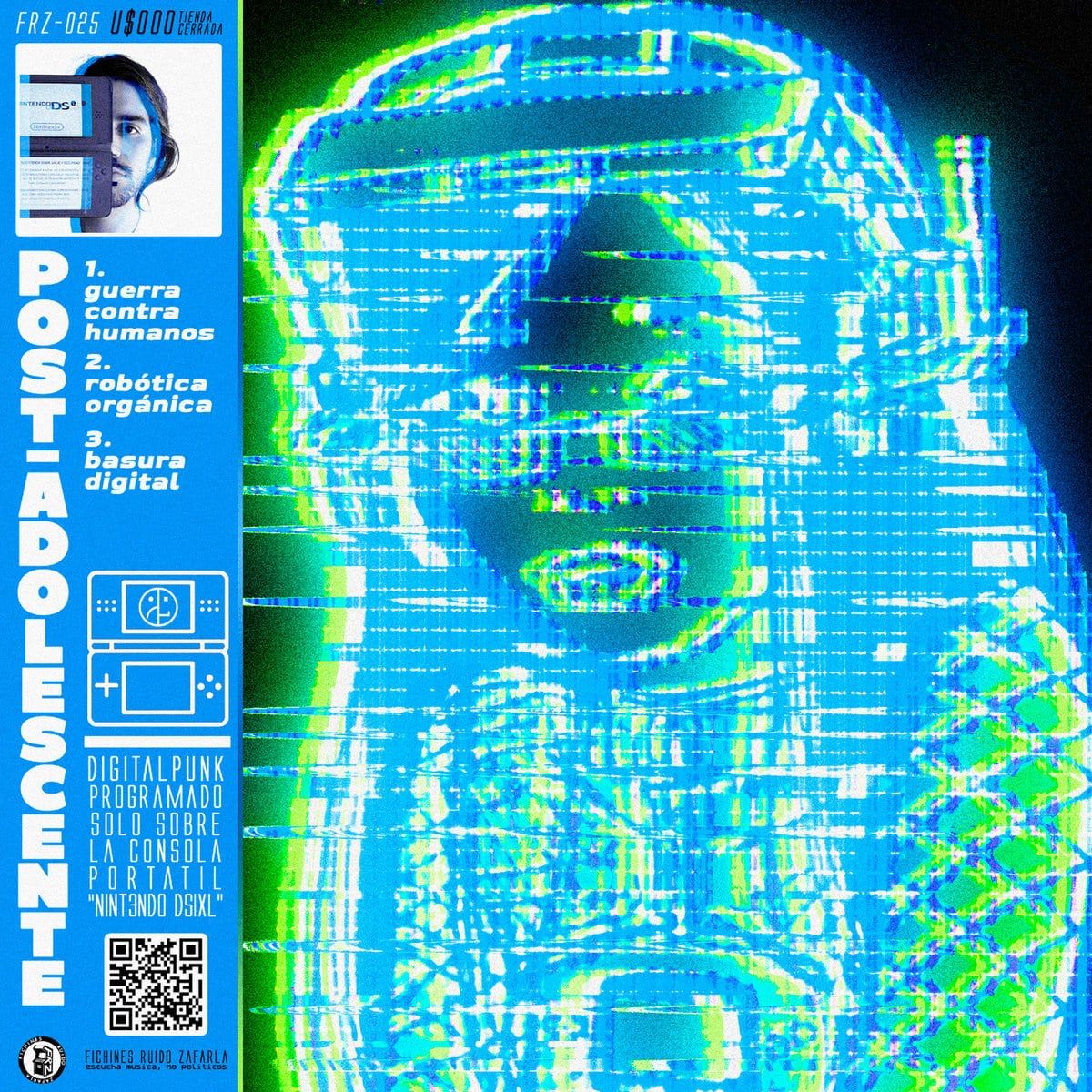
The creative process for Andino was both a departure from and a continuation of his musical journey, having been part of bands like StevexJobs, PSOAS, and WWW. “It was very enjoyable and fun in the songwriting process. It made the trips feel shorter and sometimes when I got home I was still playing out of excitement,” he recounts.
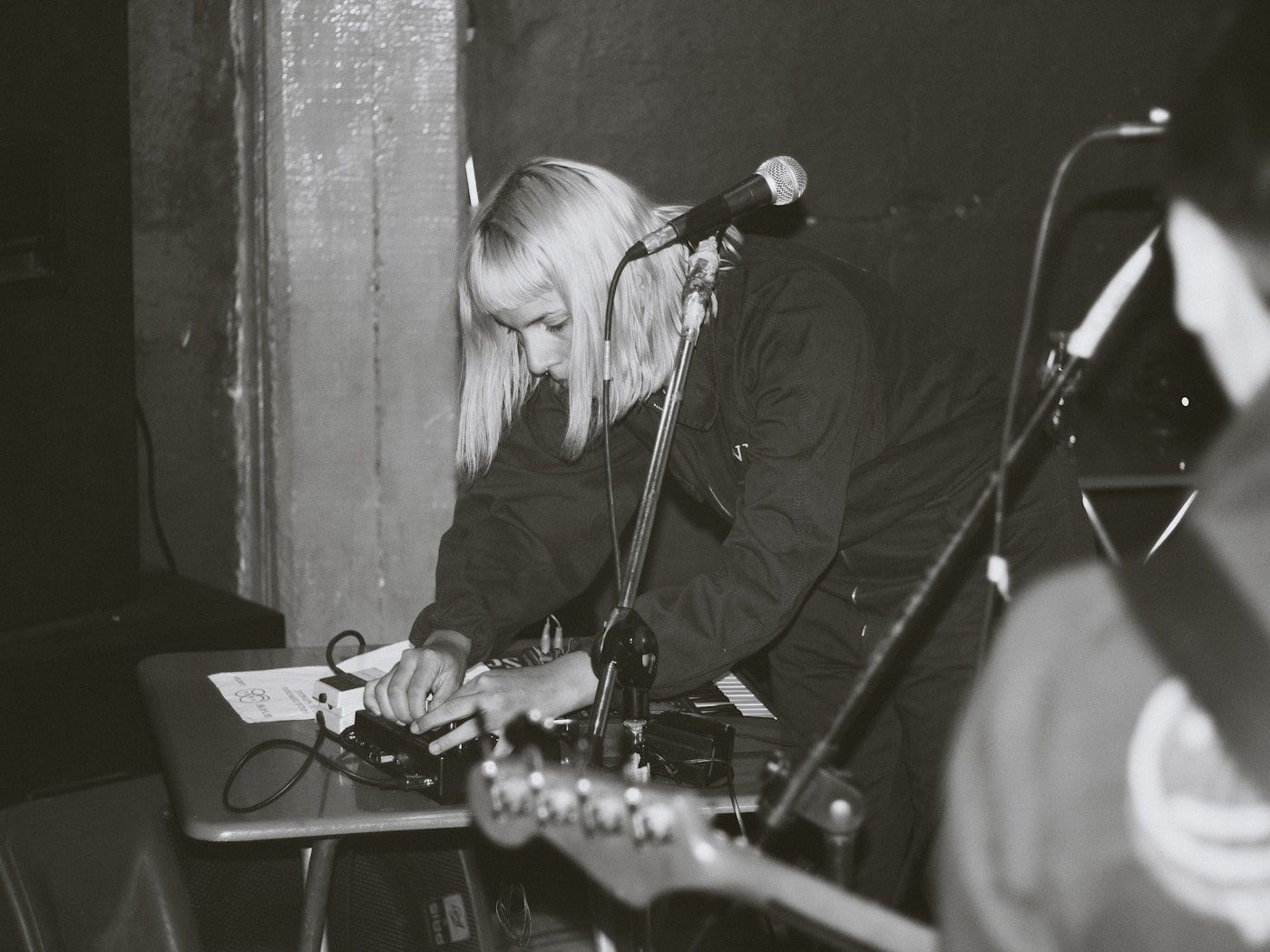
Presenting his work directly from the console added an unusual but authentic dimension to sharing music, underscoring the intimate and personal nature of his artistic expression.
In October 2020, amidst the backdrop of a world turned inward by the pandemic, the guitar and drums duo RUDIX ventured into the realm of digital production with an admirable level of simplicity and immediacy. Utilizing the Bandlab app, Mar and Rolo, the creative forces behind RUDIX, encapsulated their raw and unfiltered musical expressions within a mere two days, underscoring the accessibility and agility afforded by modern technology.
“It was good to record with the cell phone and Bandlab because it didn’t need much effort or wiring,” Mar, the group’s female singer and guitarist, reflects. This sentiment captures the essence of the DIY ethic that propels RUDIX and their peers within the Fichines Ruido Zafarla label. With backgrounds in bands like Pegamentozzas and Las Hiedras for Mar, and Shuu, Satan Zaguero, among others for Rolo, the duo’s decision to continue making music in the face of a disbanded project speaks volumes about their dedication to their craft.
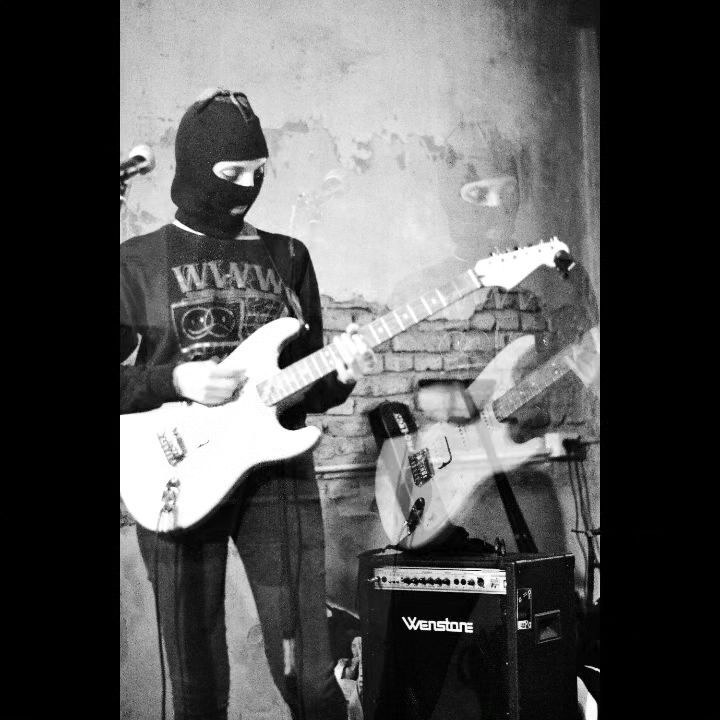
The addition of Ezequiel “Tuly” Frias as bassist further solidified the project, enriching their sound and expanding their creative horizons. RUDIX’s lyrical themes delve into the ennui and isolation of their immediate surroundings, painting a stark portrait of disillusionment with the current state of the world. “All the disappointment and frustration with this world. We are quite pessimistic,” Mar admits, offering a glimpse into the emotional depth and introspection that characterizes their music.
Their journey from the first demo to their second and the eventual release of “demo III” online in October 2023 illustrates a band in constant evolution, unafraid to revisit and refine their work. The international recognition from Dial Club, a Japanese label known for its cassette editions, further underscores the universal appeal and resonance of RUDIX’s message.
SPAM materializes as a serendipitous creation, adding another layer to the narrative of Argentine punk’s pandemic-era renaissance.
Max Setentista, a fixture in the Argentine independent music scene through his Youtube channel, initially dabbled in music production out of ennui during the lockdown. His casual experiments with guitar led to the foundation of SPAM, inspired by contemporaries like PeloMuerto and Rudix who harnessed their cellphones for recording. “SPAM was born almost by accident,” Max reveals, encapsulating the unexpected journey from casual experimentation to the creation of a distinctive sound identity.
By late 2021, curiosity piqued by the DIY ethos of his peers, Max ventured into Bandlab, enriching his guitar bases with a full band ensemble through digital means. The result was his first demo in July 2022, a concoction of raw punk infused with digital and cybernetic themes, recorded in the modest confines of his room. “All the lyrics were put together at the last minute,” he shares, highlighting a creative process marked by spontaneity and a penchant for blending futuristic narratives with critical and self-reflective messages.
SPAM’s discography, characterized by its digital DIY aesthetic and thematic versatility, quickly caught the attention beyond Argentina’s borders, leading to a release by the Californian label “Popular Affliction Record.” Following his initial success, Max continued to explore and expand SPAM’s sound through subsequent demos and collaborations with other artists in the digital punk scene, like DIABLOS INC. and the Chilean cyberpunk project Contra.
Looking forward, Max hints at a departure from the frenetic pace of rabid punk towards a more nuanced sound with his next demo, indicating a shift towards garage and egg punk. Concurrently, he’s also nurturing Insoportable, a new raw hardcore venture, showcasing his relentless drive to innovate and evolve within the punk genre.
Rocko Rainoldi, a distinguished figure in the punk scene with a history in bands like Flores del Sol and The Tormentos, embarked on a solo venture, Rocko Rainoldi & su Teléfono Maldito, amidst the global pandemic.
This project was Rainoldi’s answer to the isolation and frustration of those times, aiming to channel the collective dismay into music. “It was born from the need to express the anger and anguish that we all went through in that annoying moment,” Rocko explains. His approach was unique: crafting tracks on his cellphone, envisioning a future where he could perform them live with just the tracks and his raw vocal power.
His process involved programming the instrumental bases on his phone, then meticulously transferring each track to his PC for vocal recording and final mixing.
This method led to the release of “Con tan poco” in July 2023, an EP of seven songs recorded, quite literally, with “a damn cell phone.” Rocko’s work on this project reflects a DIY ethic and an inventive use of technology, embodying the punk spirit’s adaptability and resilience.
Heidy, known artistically as “La Niña del Kaos,” channels her life experiences of street living, police chases, and the daily struggle for sustenance into her music.
Using the Caustic 3 app, she has crafted albums that resonate with the raw essence of her life. Her journey into music, as she recounts, began with “Mugre para tus oídos” in 2020, a project marked by its ambient recording methods and a blend of live vocals with a Spanish guitar filtered through a speaker.
“It was a bit difficult for me to record because I lived in campsites or I was in homelessness,” Heidy shares, reflecting on the challenges she faced while recording her follow-up album “Lxs odio a todxs” in 2023.
Heidy’s artistic path has not been confined to studio recordings. She has actively participated in street blockades and protests, notably in Rosario in 2021, advocating for the disappeared Tehuel de la Torre. Her music and activism took her on a nomadic journey across Latin America, from her hometown of Santo Tomé to the tropical jungles of Peru, Ecuador, and Colombia. “From Argentina to Peru I came playing in punk concerts or rap events that invite me for the fact that I played with audio tracks,” she explains, highlighting the unique aspect of her performances.
In 2023, Heidy evolved her musical expression with the addition of Mitchel on bass and Tierra on drums, culminating in the release of “Produkto Bazura,” recorded in Lima by Al Ruedo Records. This new dynamic marks a departure from her solo work, enriching her sound with the depth of live instrumentation. “Now I got tired of playing with backing tracks,” Heidy admits, signifying her growth as an artist and her continuous adaptation to the ever-changing landscapes of her journey.
Lisandro Ferreira’s OYO stands as a bold exploration of sexual experiences, narrated with unfiltered honesty or through the lens of his vivid imagination. The project, which took root in the midst of 2020, draws inspiration from the raw energy of Dawn of Humans’ “Blurst of the Birdfish,” propelling Lisandro towards creating something equally unorthodox. His initial forays into recording were met with technical challenges, leading him to embrace the app’s synths for their ease of use and calibration. “So I used the synths that came in the app because that way you don’t have calibration problems,” Lisandro shares with a laugh, underscoring the DIY ethos that fuels OYO.
The journey from composing the music to finalizing the lyrics spanned two years, culminating in his first demo in 2022. The thematic focus on sex was both a creative and conceptual choice, aiming to reflect the ubiquity of sexual experiences in a society that is simultaneously hypersexualized yet often dismissive of candid discussions about sexuality. “I wanted to make a conceptual group,” Lisandro explains, articulating his desire to create music that mirrors society’s contradictions and complexities regarding sex.
Recorded in the seclusion of his room in the 9 de Julio neighborhood of José C. Paz with a humble Samsung Galaxy Grand 2, OYO’s music is a document of Lisandro’s ingenuity and resourcefulness. The entire process, from riff to recording, is an exercise in spontaneity and improvisation, with Lisandro laying down tracks in a burst of creative flow. This method of composition, he notes, is how the demos came to be, marking a distinct departure from his work with the Gorgojo project.
By November 2022, Lisandro released OYO’s Demo II, which later saw a limited cassette edition in the United States through XTRO label. The release of Demo III in April 2023 showcases his growing mastery of n-Track Studio, offering listeners a deeper dive into the evolving soundscapes of OYO. Through this project, Lisandro not only challenges societal norms but also invites listeners to find a piece of themselves within the narratives, making OYO a mirror to the often unspoken aspects of human sexuality.
Want us to deliver more DIY journalism?
IDIOTEQ is a one-man DIY operation, tirelessly spotlighting the local cultural scenes and independent bands that often go unreported elsewhere. Born in the early 00s, this platform has been committed to giving hard-working artists the high-quality coverage they truly deserve.
No ads, no distractions—just pure inspiration and a genuine focus on independent artists and their stories.
Please consider helping keep IDIOTEQ ad-free and in tune with the indie scene by donating today.
DONATE via PayPal 𝗈𝗋 SUPPORT via Patreon
100% of the funds collected go toward maintaining and improving this magazine. Every contribution, however big or small, is super valuable.
Your support ensures that we continue to be a place where you can discover, learn, and get inspired, without any advertising noise. Thank you for being a part of this musical journey.



